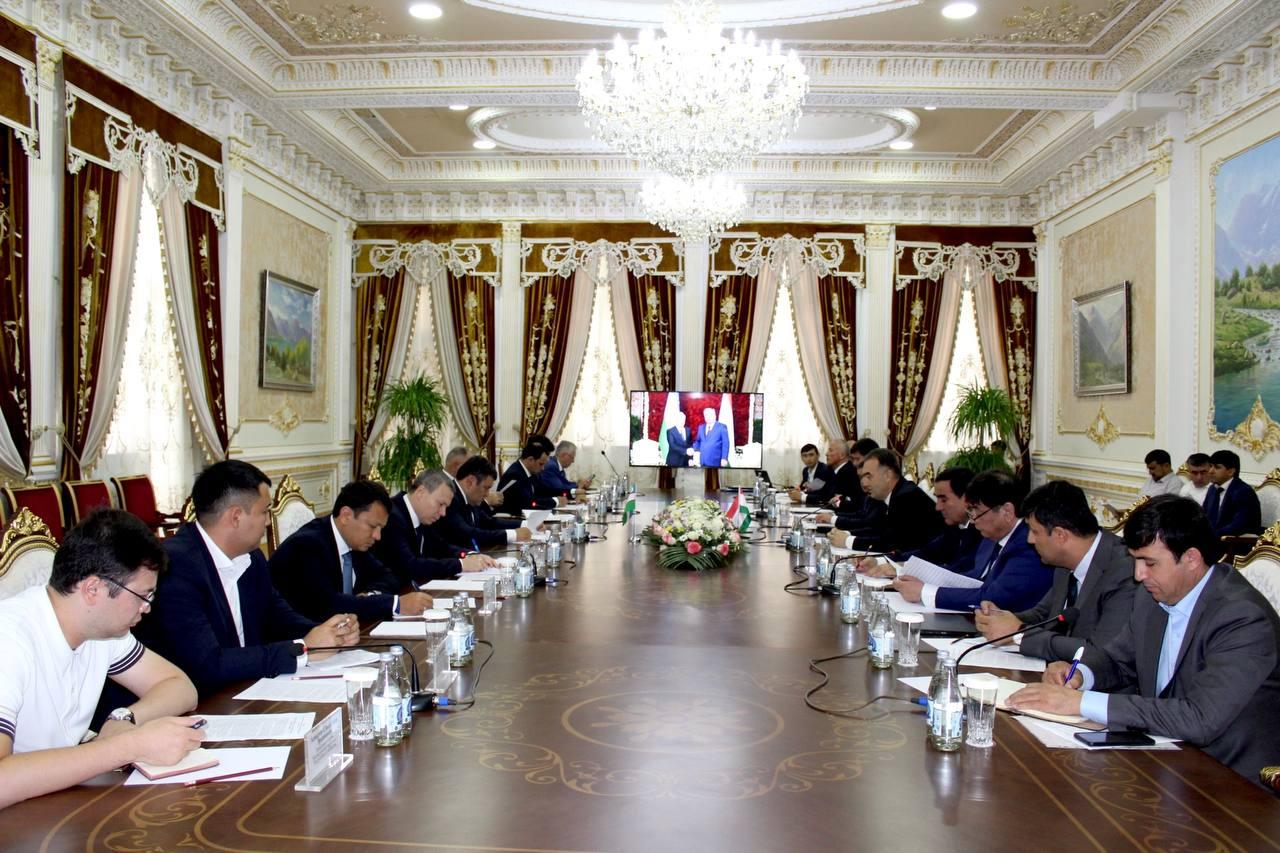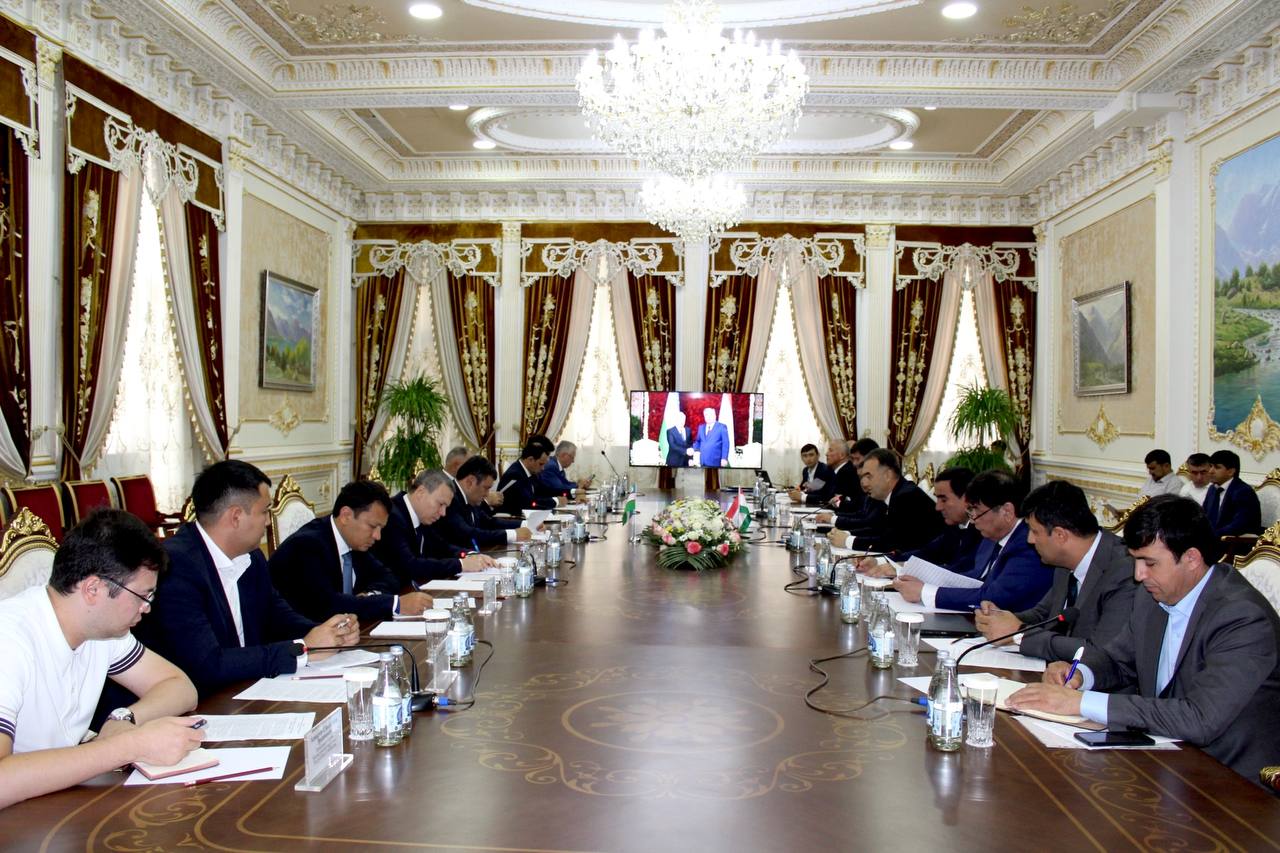Uzbekistan and Tajikistan Enhance Regional Energy Cooperation with Unified Power System Project




In an exciting development for regional energy security, Uzbekistan and Tajikistan have taken significant strides towards bolstering their energy cooperation through the ambitious "Reconnection to the Unified Energy System of Central Asia" project. This groundbreaking initiative represents more than just technical collaboration—it embodies a vision of unified regional development that promises to transform the energy landscape of Central Asia for generations to come.
On August 14, in the picturesque city of Gulistan, Sughd region, officials from both nations came together to discuss the technical aspects of this transformative project. The meeting served as a crucial milestone in the ongoing efforts to create a seamlessly integrated energy network that transcends national boundaries. This mutual effort was orchestrated by Uzbekistan's Minister of Energy, Jurabek Mirzamakhmudov, and Tajikistan's Minister of Energy and Water Resources, Daler Juma, alongside a distinguished cadre of senior energy experts from both countries who brought decades of combined experience to the table.
The initiative seeks not only to amplify regional energy stability but also aims at enhancing efficiency across borders through innovative coordination mechanisms. The project promises to deliver enhanced energy security while simultaneously achieving a significant leap in operational efficiency that will benefit millions of citizens across the region. This cooperative framework represents a masterclass in diplomatic energy management that other regions can emulate.
One of the primary focal points of the discussions was the meticulous preparation for the upcoming autumn-winter season of 2025-2026. Both parties are working diligently to synchronize their national energy systems with precision, ensuring that power flows smoothly and reliably regardless of seasonal demands or weather challenges. This forward-thinking approach demonstrates both nations' commitment to providing uninterrupted energy services to their citizens during the most demanding periods of the year.
The technical intricacies of the project involve sophisticated coordination mechanisms that will allow both countries' energy infrastructure to operate as a unified system. This means that electricity will flow as freely as air across the borders of Central Asia, creating unprecedented opportunities for energy optimization and resource sharing. The coordination of national energy systems represents a revolutionary approach to regional energy management that prioritizes collective prosperity over individual interests.
Driven by the visionary leadership of Presidents Shavkat Mirziyoyev and Emomali Rahmon, this collaboration showcases a vibrant progression in bilateral energy relations that extends far beyond mere technical cooperation. Their initiative transcends traditional political boundaries, focusing instead on reinforcing strategic and fraternal ties that serve the greater good of both nations. This presidential-level commitment ensures that the project receives the sustained support necessary for long-term success.
The energy talks held in Gulistan marked a significant meeting of minds between regional leaders who share a common vision for Central Asia's energy future. With senior luminaries from both countries' fuel and energy sectors in attendance, the discussions addressed complex technical challenges while maintaining focus on the broader strategic objectives. The presence of high-level officials from both sides underscored the importance both governments place on this transformative initiative.
Both sides expressed profound contentment with the current partnership status and reiterated a firm commitment to deepening these strategic ties for the benefit of their citizens. The palpable sense of satisfaction resonating throughout the meetings reflected not only the celebration of existing achievements but also the passionate reaffirmation of their commitment to bolster regional cooperation. This project transcends mere energy cooperation—it represents a fundamental strengthening of the bonds between two nations united by shared aspirations.
The dynamic partnership between Uzbekistan and Tajikistan is setting a stellar example of international cooperation that other regions can follow. As they prepare for the critical 2025-2026 period, both nations are demonstrating how collaborative approaches to energy management can address environmental challenges while promoting social welfare. This cooperation ensures a brighter, more secure energy future against the backdrop of increasing regional integration and mutual interdependence.
In essence, the ongoing efforts by Uzbekistan and Tajikistan represent a transformative approach to regional energy cooperation that prioritizes shared prosperity and sustainable development. The project embodies the essence of regional unity aimed at tackling complex technical challenges while strengthening diplomatic ties. As these two nations move forward together, they are creating a model for energy cooperation that promises reliability, efficiency, and prosperity for all Central Asian peoples.

Comments